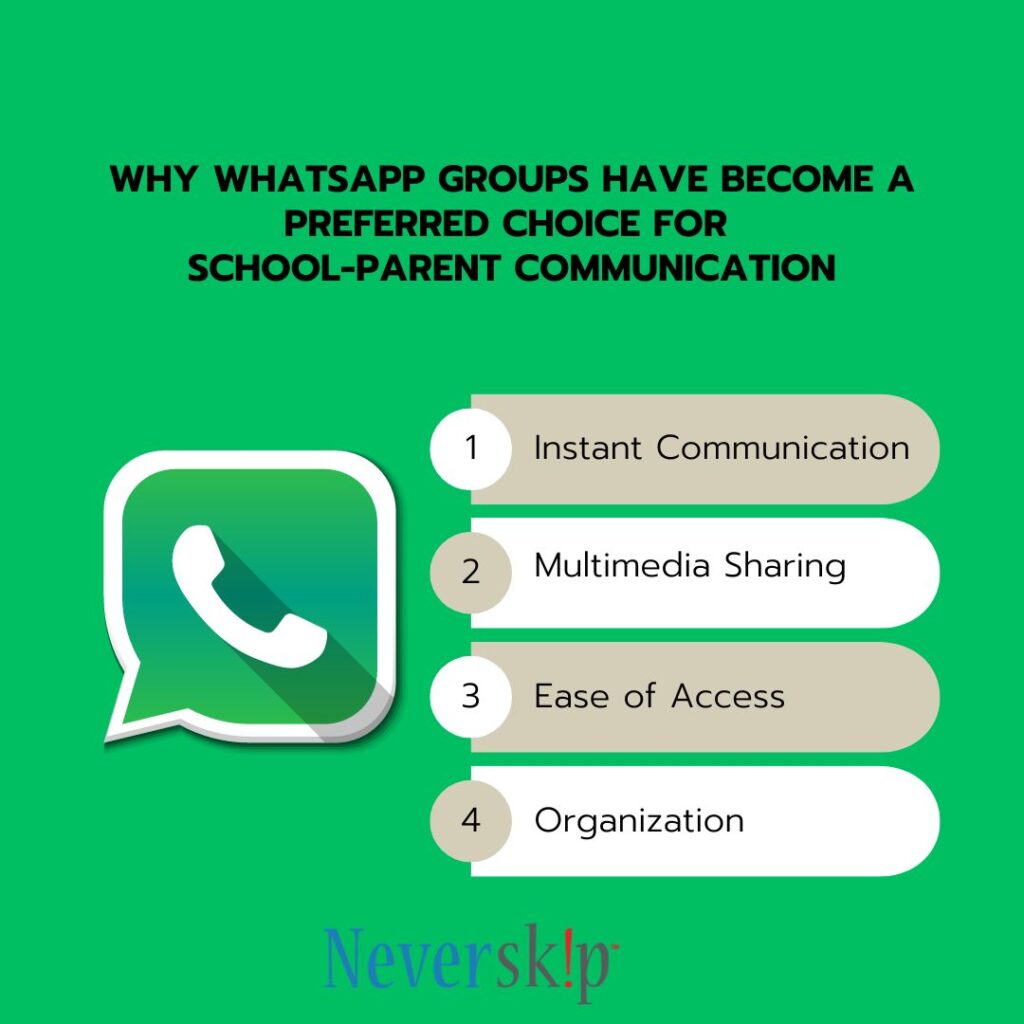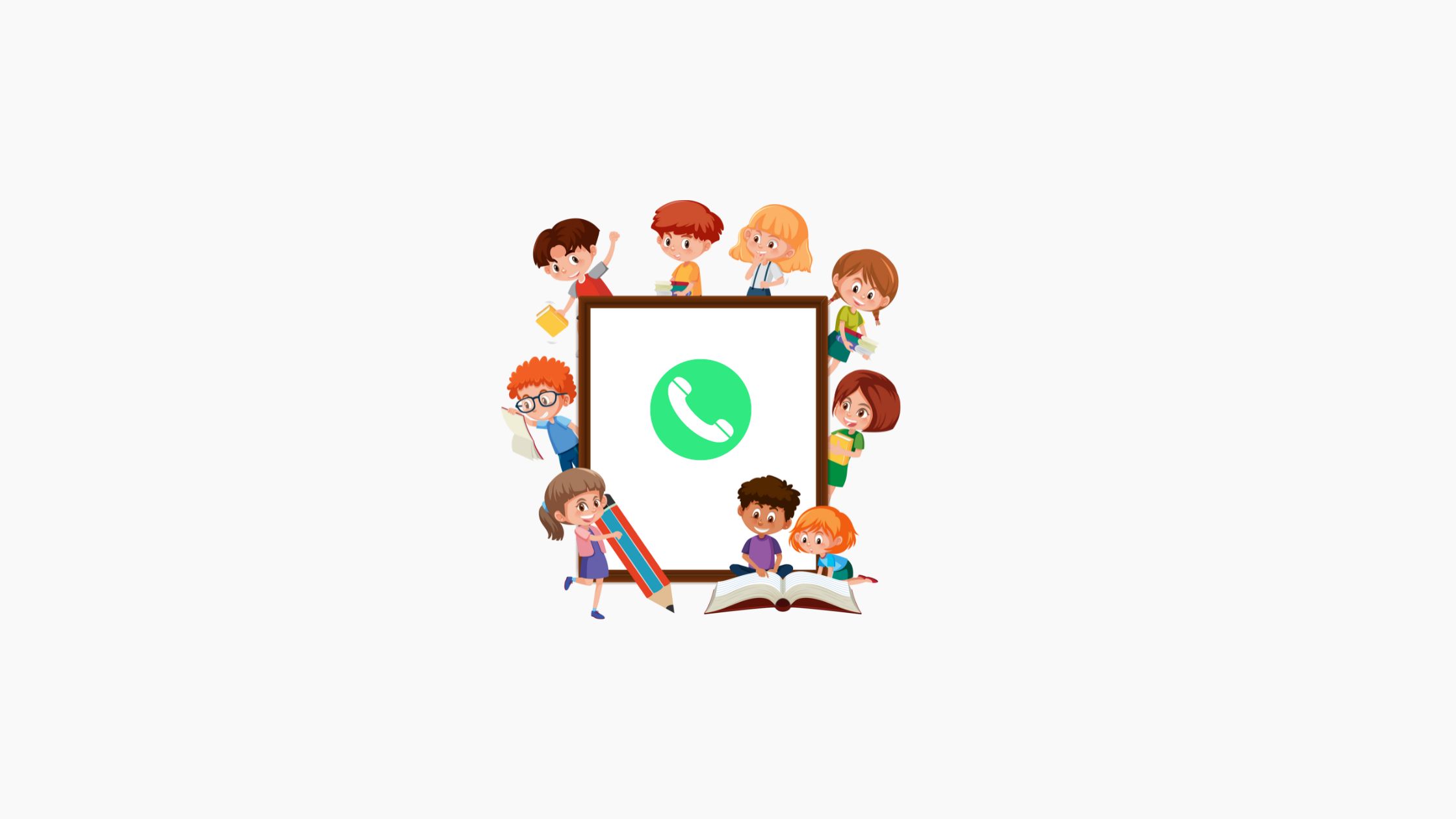In today’s digitally connected world, where over 450 million people in India use smartphones and have access to instant messaging apps like WhatsApp, communication between schools, teachers, and parents has taken on a new dimension. WhatsApp groups have become an indispensable tool for facilitating this communication, providing a platform for quick updates, sharing important information, and fostering collaboration.
Did you know?
- India is the largest market for WhatsApp, with over 400 million active users as of 2021, according to Statista.
- 87% of parents in India use WhatsApp for school-related communication.
The widespread adoption of smartphones has made WhatsApp the go-to platform for parents and teachers alike, offering a seamless way to stay connected. However, to ensure these groups serve their purpose effectively in the Indian educational landscape, it’s essential to establish clear ground rules. In this guide, we will explore the dos and don’ts of managing school parents’ WhatsApp groups, helping teachers and school administrators create an environment conducive to productive communication.
Why WhatsApp Groups for School Communication?

Before diving into the rules, let’s briefly touch on why WhatsApp groups have become a preferred choice for school-parent communication:
- Instant Communication: WhatsApp offers real-time messaging, making it easy to share important updates and address urgent concerns.
- Multimedia Sharing: Teachers can share documents, images, videos, and links, enhancing the quality of information exchange.
- Ease of Access: WhatsApp is widely accessible, as most parents already use the platform, eliminating the need for additional apps or accounts.
- Two-way Communication: Unlike traditional methods, WhatsApp allows for interactive communication, fostering a sense of community.
- Organization: Groups can be categorized by grade, class, or specific purposes, making it easy to target messages to the right audience.
Now that we understand the advantages, let’s establish some ground rules to ensure these groups serve their intended purpose effectively.
Setting Up the WhatsApp Group: Best Practices
- Clear Naming Convention: When creating the group, use a clear and descriptive name, such as “Grade 5 Parent-Teacher Communication” or “School Announcements.”
- Group Description: Make use of the “Group Description” feature to provide a brief explanation of the group’s purpose and any specific guidelines. This is where you can use the keyword “school parents’ WhatsApp group description.”
- Admin Roles: Appoint a few responsible individuals as group admins. Admins play a crucial role in maintaining order and ensuring the group’s adherence to rules.
Defining the Ground Rules
1. Respect and Courtesy
- No Offensive Language: Emphasize the importance of maintaining a respectful tone. Offensive language or behavior will not be tolerated.
- Constructive Criticism: Encourage parents to express concerns or disagreements constructively, focusing on the issue at hand rather than personal attacks.
- Private Matters: Remind parents that sensitive or private matters should be discussed privately with teachers, not in the group.
2. Communication Etiquette
- Timing Matters: Encourage parents to be mindful of the timing of their messages. Late-night or early-morning messages should be avoided unless urgent.
- Stay on Topic: Request that messages stay on topic and relevant to school-related matters. Personal conversations should be taken to private chats.
- Use of Emojis and GIFs: While these can add humor, advise against overusing them, as it may clutter the conversation.
3. Information Sharing
- Fact-Checking: Encourage parents to verify information before sharing it within the group to prevent the spread of rumors or false information.
- Confidentiality: Stress the importance of not sharing sensitive school-related information outside the group, respecting the school’s privacy policies.
4. Frequency of Messages
- Limit Forwarded Messages: Discourage the excessive forwarding of messages, memes, or videos that are not directly related to school matters.
- Important Announcements: Recommend that important announcements or updates from the school or teachers be pinned for easy reference.
5. Problem Resolution
- Dispute Resolution: Establish a procedure for dispute resolution. If conflicts arise, encourage parents to reach out to a designated school contact or admin for assistance.
- Blocking and Removal: Specify conditions under which a member may be temporarily muted, removed, or blocked if their behavior disrupts the group.
6. Attendance
- Attendance Notifications: Teachers should notify parents of their child’s absence or tardiness using the group when necessary, but avoid excessive use.
- RSVPs: For school events or meetings, request that parents promptly respond to RSVP requests to facilitate planning.
7. Frequency of Posts
- Frequency Guidelines: Set clear expectations regarding the frequency of posts from teachers, parents, and administrators to prevent excessive notifications.
- Quiet Hours: Consider implementing “quiet hours” when non-urgent communication should be limited to avoid disruptions.
Technical Setup for School WhatsApp Groups
Now that we’ve covered the ground rules, let’s explore some technical tips to enhance the use of WhatsApp for school communication:
- Broadcast Lists: Use broadcast lists to send messages to multiple contacts without creating a group. This can be handy for one-way communication, such as sharing school announcements.
- Pin Important Messages: Important announcements or documents can be pinned to the top of the group chat for easy access by members.
- Privacy Settings: Ensure that the group’s privacy settings are configured to restrict who can add members or edit group info. This helps prevent unauthorized changes.
- Backup Chats: Regularly back up chat histories to safeguard important information and messages.
- WhatsApp Web: Teachers and administrators can use WhatsApp Web for more convenient typing and management of group chats on a computer.
By setting clear ground rules and making the most of WhatsApp’s features, teachers and school administrators can harness the full potential of WhatsApp to enhance the school-parent relationship and create a more informed and engaged school community.
In conclusion, creating and maintaining a school parents’ WhatsApp group that adheres to these rules can lead to improved communication, stronger partnerships between parents and teachers, and a more positive educational experience for all involved.








